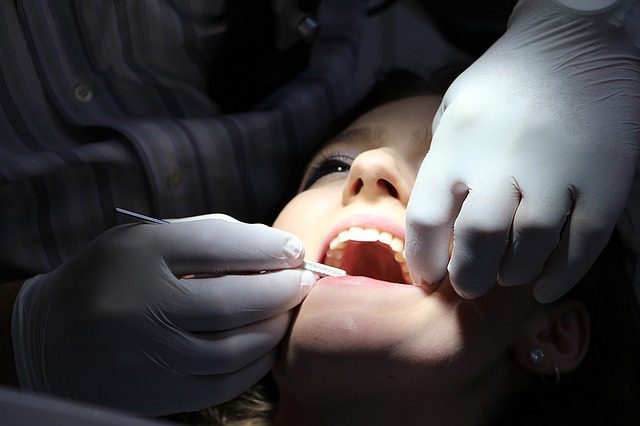The idea of receiving anesthesia can be intimidating, especially if you’ve had a bad experience before or have a high risk condition. Having a fear of dentistry or being afraid of receiving an oral surgery sedative prior to operation is a completely normal feeling. Plenty of people feel exactly the same, and the caring and compassionate dental surgeons out there are able to work around it with you. What’s important to keep in mind is that Dr. Puckett is a trained and experienced oral surgeon who is licensed to administer all types of sedation dentistry. You have a range of options available, so we can tailor a safe and comfortable sedation method for your oral surgery. Our top priority is to make sure you feel comfortable at all times, and that extends to feeling mentally comfortable and not just physically. There’s a lot of misconceptions around dental anesthesia, and we’re here to help.
We’re happy to discuss different anesthesia in detail. We want you to feel as comfortable and relaxed as possible. As a maxillofacial surgeon, Dr. Puckett wants what’s best for his patients — and that means high quality care, delivered as comfortably and pain-free as possible. If you’re looking for holistic care during and after oral surgery, we’re open to talking about those options too.
Who Needs Sedation Dentistry for Their Oral Surgery?
There are quite a few reasons you may need to be sedated during a surgical procedure on your mouth. Often, sedation dentistry is just as much about keeping a patient calm and relaxed as it is about keeping them resistant to pain. You’ll need some kind of sedation regardless of the type of oral surgery if you have –
- A fear of dentists and oral surgeons
- A fear of needles
- A movement disorder
- An overactive gag reflex
- Claustrophobia about being in a dentist chair
- Extreme sensitivity in your teeth
There are some oral surgeries where we’ll likely always recommend some kind of sedative that eliminates pain during dental operations. Wisdom teeth removal and having a titanium dental implant installed are two of the most common surgeries where anesthetics are frequently used. But it’s not the kind of analgesic sedative used in mouth procedures that puts you under. In fact, there are a handful of different types of anesthetics and sedatives that you might not even know about.
We’re often asked: What kind of anesthesia is used for oral surgery? There are a number of options available. Let’s look at them in detail.
What Types of Sedation are used for Oral Surgeries?
There are 4 types of anesthesia are commonly used in oral surgery:
- General Anesthesia
- IV Sedation
- Local Anesthesia
- Nitrous Oxide Sedation with Local Anesthetic
Each of these anesthetics given to oral surgery patients act differently. Some are more of a numbing agent for a specific area of the body, while others are much more like what most people think of: the type of anesthetic where you’re out cold and won’t wake up until the medication wears off and leaves your body. Let’s take a look at some of the more common ones you’ll find.
Local Anesthesia
With local anesthesia, you’ll be conscious throughout the oral surgery. This is the method commonly used by dentists if you’ve ever had a cavity. We inject an anesthetic (such as lidocaine) in and around the surgery area. The only discomfort is a slight pinch when it is applied. After the injection, you’ll slowly begin to lose feeling in the targeted area. Local anesthesia that’s used in oral surgeries doesn’t last a long time, but pain is nearly completely eliminated. Fair warning: it’s not uncommon for dental procedure patients given local anesthetic to drool on the side of their mouth where it was injected until it wears off. Don’t say we didn’t warn you.
Local anesthesia is typically used for minor oral surgery. You may feel the pressure of the dental instruments. If you feel any discomfort, let us know. We’d be happy to adjust the medication levels until you are perfectly comfortable. Lidocaine, one of the more popular anesthetics for oral surgeries, tends to only last around a few hours at its average dosage. While the aforementioned drooling may happen, you’ll be completely lucid after its administered, and you’ll gradually regain feeling in the target area as the medication wears off.
Nitrous Oxide Sedation with Local Anesthetic
Sometimes we combine nitrous oxide sedation with a local anesthetic. This approach can be done for simple oral surgeries and dental procedures, but it can also be done for wisdom teeth extraction if you’re worried about being put under. Otherwise known as laughing gas, nitrous oxide will help you relax and can ease anxiety. It acts as a sedative and analgesic, calming you and controlling pain.
When you’re given nitrous oxide for a dental procedure, you’re totally lucid during the entire operation, but you’re much more relaxed easier to operate on. It works wonders for patients who experience mild dental anxiety. It’s just enough to calm those nerves, and when used in conjunction with a local anesthetic is an oral sedative that most patients like and respond well to. Laughing all the way through surgery while not feeling a thing sounds like a good time to us too.
IV Sedation
IV sedation is a deeper form of anesthetic applied to an intravenous catheter. Also known as twilight sedation, this type of sedation doesn’t completely knock you out, but you will likely have no memory of the procedure. You may remember a brief conversation before the procedure and immediately after we are done, but little to no recollection of the process itself. You will be calm and comfortable, drifting in and out of sleep, barely conscious.
Oral surgery sedatives administered via IV are used for procedures like wisdom teeth removal or multiple extractions happening at the same time. Bone grafting and periodontal surgery are two of the other major types where your oral surgeon will probably think about using IV sedation.
Patients with moderate to severe dental anxiety also benefit from IV sedation. Again, you’re not fully out, but you’ll have no memory of the surgery happening. Your anxiety will never be triggered, and you’ll feel calm and collected by the time you wake up.
General Anesthesia
When you think about being put under for a surgery, you are thinking of general anesthesia. It’s a more involved anesthesia experience than IV sedation as you will be completely put to sleep. We tend to use this for more extensive oral surgeries such as impacted wisdom teeth removal, dental implant placement, or face and jaw full mouth reconstructions.
We’ll be honest—we don’t love using general anesthesia in oral surgeries, and we try to avoid it when we can. It’s not that it’s not safe. We take every precaution necessary to ensure our patients have a successful experience with anesthetics. But, it’s generally easier on everyone involved to stick with one of the former options that don’t fully knock you out. That being said, patients who suffer from extreme, debilitating dental anxiety to the point where they can’t sit still benefit greatly from general anesthesia.
Are There Risks to Sedation Dentistry for Maxillofacial Surgeries?
Like anything in medicine, there are certain risks associated with any of these sedation methods. Albeit, the risks of side effects are really low, but are something to watch out for during recovery. People with certain health problems might have a more difficult time recovering from the sedative used in their oral surgery. Side effects may include:
- Dry mouth
- Headache
- Lingering drowsiness
- Nausea/vomiting
Sedation dentistry is also safe for pediatric oral surgeries, and is often useful for keeping kids calm during a procedure. Anesthetics used in wisdom teeth surgery for teenagers is super common. So is localized anesthesia used in tooth extractions and cavities for children. It’s a great way to minimize pain and ensure your child has a good experience at the dentist office. The normal range of side effects from sedation dentistry in children is:
- Irritability
- Longer time to wake up than adults
- Low fever
- Nausea/vomiting
- Snoring
One demographic we don’t give oral sedation to is pregnant women. Anesthesia can cause issues with prenatal development, so if you’re pregnant and need oral surgery, we wait until the 3rd trimester for nitrous oxide, and until you give birth for any other anesthesia methods.
Getting the Care You Need, No Matter Your Health
All forms of sedation dentistry are available at our office. We strive to use natural medications as much as possible. Some health conditions limit what kinds of anesthesia we give our patients. Even if you do have one of the conditions that limits anesthesia usage, we’ll work with you to find an alternative to sedatives administered in oral surgeriesthat will still leave you as comfortable and relaxed as possible. Your safety is our utmost concern overall, but close behind is your comfort level, so don’t worry, our oral surgeon. Dr. Puckett, will find the best sedation solution for your oral procedure.
This is another reason, though, to ensure you give us all your medical information, so we can ensure your anesthesia experience is safe and positive. Health conditions that affect the safety of general anesthesia, specifically, are:
- Allergy to anesthesia
- Diabetes
- Heart conditions
- History of strokes
- Kidney disease
- Lung conditions
- Neurological disorders
- Severe sleep apnea
On the other hand, there are other types of patients that sedation dentistry is particularly useful for, such as a neurodivergent patient with special medical needs, patients with extreme anxiety, or patients who suffer from dementia or Alzheimer’s.
The sedation we use for your oral surgery will depend on the factors we’ve discussed. Sedation dentistry can be an effective way of getting the care you need in a comfortable, relaxed, and safe setting.








